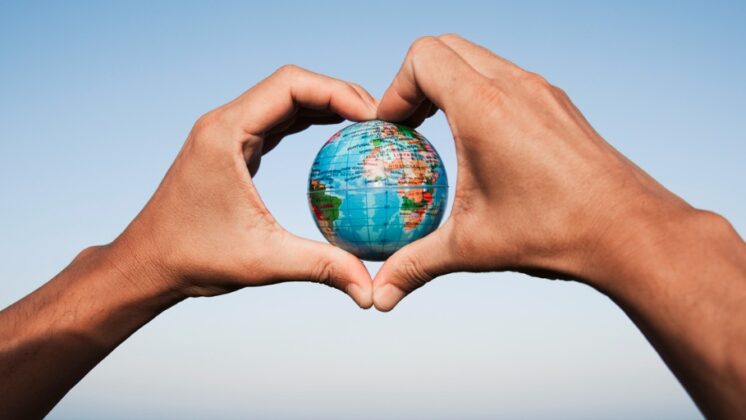The past two years have been the most challenging in the travel industry’s history. According to a UNWTO report, international tourism numbers of 2020 regressed to a thirty-year low.
For decades before the pandemic, tourism was unsurprisingly one of the fastest growing industries around. It contributed 10.4% of the global GDP and created one out of every ten jobs worldwide in 2019.
But the tourism industry has not been as kind to the environment or the communities that host tourists from around the world. Air travel leaves a massive carbon footprint. A deluge of tourists often leads to damage on historical sites, natural wonders, and local societies.
It’s clear that the tourism industry is overdue for a change. But the fast-growing nature of the market hasn’t provided the space for that—until now.
COVID-19 has pumped the brakes on travel, creating lull in traffic and a once-in-a-lifetime opportunity. While major travel companies are scaling down their operations during the pandemic, innovative startups are now emerging to transform the industry for the better—and for good.
3 Approaches to Digital Transformation in Tourism
According to a report by Lufthansa Innovation Lab, travel and mobility tech startups continue to flourish in the pandemic. Local governments and international organizations worldwide have rolled out initiatives to support tourism startups that promote the recovery and transformation of the tourism sector. The World Tourism Organization holds a variety of startup competitions, and the government of Singapore provides an accelerator program for tourism tech startups.
Startups either originating from or working with emerging markets are increasing. Many of them are taking innovative approaches to rebuild the tourism sector with a brighter, more responsible image.
Here are three key approaches startups are taking to transform the travel and tourism industry.
Connecting Tourists with Authenticity
Travel has become a rare privilege. Tourists are now more particular than ever about making the most out of each travel experience. Besides a sense of safety, they want personalization and uniqueness—something brochures and guided tours just can’t provide.
Tourists are also becoming increasingly aware of the impact they have on the environment and communities they travel to. In 2018, the OECD reported that 66% of travelers said they are willing to pay a premium for a more sustainable experience, and 58% would not travel at all if their trip would negatively impact the local community.
Unlike typical packaged tours that show vacationers the same old sights, these newly desirable travel experiences are often scattered, even hidden away in discrete destinations. Many startups are finding that these authentic, sustainable experiences arise from human connection, rather than just pretty sights and overpriced local cuisine.
The solution? Startups that act like matchmakers between travelers and locals.
Next Article
Lessons from Silicon Valley: The Challenges and Triumphs of Tokyo Startup Culture
How to Find Your (Elemental) Role in Sustainability-Driven Innovation
Koa: Building a User-First Fintech Startup in an Emerging Market
Bringing Local Communities into the Digital Age
If online booking giants like Airbnb and Expedia are any indication, it’s clear that the tourism sector doesn’t shy away from the adopting new tech. That said, not every player in the sector enjoys the benefits of digitalization.
Consider the typical tourism worker: 80% of the tourism industry is made up of small or medium-sized enterprises (SMEs). The industry also provides many jobs for unskilled workers, especially those living in developing nations. This means that many aren’t equipped to embrace digital tech. Funds, tools, and training opportunities are limited. Even standard tasks like registering a property on a booking site, setting up an online payment system, and tracking customer information can be huge obstacles.
New startups can help local players get up-to-date and integrated into the digital ecosystem quickly. Easy-to-use apps for mobile devices work well for those without access to a PC. Hands-on support can help leverage local presence. Digital technologies enables local players to work more efficiently and access the global market directly.
Engaging local players in the digital ecosystem is key to a more sustainable tourism industry.
Maximizing (Not Exploiting) Local Resources
Game-changing startups commit to making a positive impact on local communities. They often have a strong attachment to their local area, its potential, and its local culture and natural habitat.
Exploiting their region is not an option. Enhancing their community’s ability to manage local tourism industry is their focus.
As a result, these startups play several roles, like business consultants, skill trainers, and community coordinators. Doing so helps scale up their businesses and generate more opportunities for other locals, creating a virtuous cycle that benefits everyone.

3 Tourism Startups Making It Happen
ViaVii
ViaVii is a Jordan-based, female-founded startup that’s provided an AI-powered booking platform and authentic vacations to travelers since 2016. Locals can register on the platform as a “curator” and create unique experiences for travelers. These can vary from stargazing tours in the desert of Al Ula to falcon handling in Qatar. Digitalized tourism experiences are also available for those still hesitant to hop on a flight.
ViaVii was among the ten startups chosen for the first edition of the “Google for Startups Accelerator Middle East and North Africa” program in 2021. They were commended for the creation of sustainable jobs and steady income for local users, especially women and young people in rural communities.
Impulse Travel
Impulse Travel was founded by Rodrigo Atuesta, a former guide and social entrepreneur in Bogota. Described as a “market-driven peace-building movement,” Impulse Travel focuses on sparking social change by driving tourism to communities in Colombia affected by violent conflict in the past.
Besides facilitating a wide variety of experiences like salsa dancing and hiking, they also provide firsthand social experiences like walking tours with ex-gang members in the infamous areas of Bogota, as well as river rafting in battle-scared forests with ex-combatants of FARC (the Revolutionary Armed Forces of Columbia).
Impulse Travel isn’t simply offering jobs to those who need a second chance—they’re encouraging locals to create and lead these projects themselves.
Impulse Travels won the UNWTO SDGs Global Startup Competition in the category of “Peace, justice and strong institutions,” as well as the Booking Booster Alumni award in 2019.
NotOnMap
NotOnMap is an award-winning social-driven platform based in Chamba, a small Indian town tucked away in the northwestern valley of Himachal. Since 2012, NotOnMap has been working with remote rural communities to preserve their local cultures and heritage with a sustainable tourism ecosystem.
They offer “Live Like a Local” experiences for travelers, providing rural homestays in remote and generally unknown destinations. The team also provides community members with a full range of guidance and training. Travelers can book their accommodations through major booking sites, including Booking.com, Agoda, and Airbnb. This allows more rural communities to increase their presence in the tourism market on a global scale.
NotonMap was also chosen as one of ten sustainable tourism startups as part of Booking Booster’s accelerator program in 20219, winning the highest grant of 280,000 euros. Thanks to these winnings, NotonMap launched an initiative in 2020 to educate rural communities across India about “health, hygiene, and sustainability” during the pandemic.
Looking Past the Pandemic: Is Tourism Better Off?
There’s no denying that COVID-19 has devastated the travel and tourism industry on a scale the world has never seen before. But it also created a space for innovative startups to renovate an aging infrastructure. By utilizing digital tech to facilitate community-first, people-focused tourism, startups are making the industry more sustainable and inclusive than ever.






